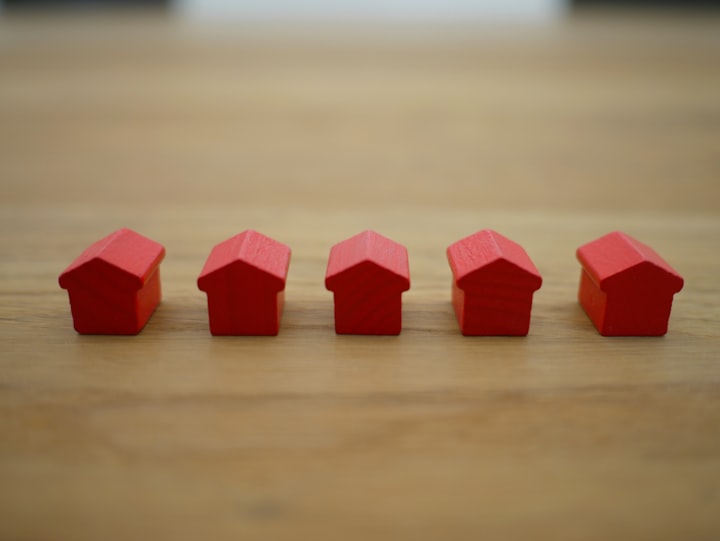Should I rent or buy a house?
Buying your first home is one of the biggest financial decisions you will ever make. Make it right!

Buying a home may be expensive at first but will save you money in the future. Renting offers more flexibility but also less security. It is important to consider all the factors and consider the alternatives.
This guide will help you decide if you should consider buying a home or if it is better to rent.
Security or flexibility
Do you want a place that belongs to you or are you happy living in a house that belongs to another and you have to make some compromises?
Buying a home can be a daunting task for you. If you rent, you usually need permission from the landlord for most things, e.g. for mounting boards on the walls or for pets.
Perhaps most importantly, buying your own home gives you a sense of security. You will no longer be afraid that you will have to move because you do not find yourself with the landlord. You also forget the risk of rent increase or eviction because the landlord wants it for rent, Airbnb, or for sale.
On the contrary, renting gives more flexibility to those who move frequently, e.g. due to work. In this case, buying a house is not the most advantageous option, as if you need to leave it, then it is very likely that you will not find a tenant right away, while the process of selling it can be extremely time-consuming and expensive.
Another factor that contributes to the flexibility of rent is that you have more options for the place where you will live. Buying a home in the desired area may not be possible, but renting it may be within your means. Also staying in a house of new construction, energy standards and amenities can be possible with a little more expensive rent.
Mortgage or rent
For most, it is the most decisive factor in deciding whether or not to buy a home.
Paying rent every month, although it offers you housing, does not return anything in terms of investment. All the money goes into the landlord’s pocket and even after retirement, you will have to pay rent for your housing.
In the case of buying a home, you will have to take out a mortgage and repay it, unless you already have the money in your bank account. You can read more about loans here.
A large part of the monthly repayment of the loan, especially in the first years, covers the interest and the rest of the repayment of the capital. This is why it takes so long to repay.
In the end, the property will remain on your property. You will not have to spend extra on housing. There is also the possibility of profit if the price of the property exceeds the initial capital and the interest you paid.
Of course, in order to get a home loan, you must meet certain conditions as a borrower. These are the corresponding income to cover the installments, deposits for advance payment, other property for mortgage or a guarantor, etc.
You must not forget that even if you take the loan you must be consistent in repaying the installments. Otherwise, there is a risk of losing your home. You do not have the same risks with rent. You can move to a cheaper or more expensive home depending on your financial situation.
In fact, depending on where you want to live, the monthly installments on the loan may be cheaper than renting in the same area.
Although property prices have risen sharply in recent years, they have fallen sharply in the early years of the crisis. In combination with the lower interest rates for housing and the more expensive rents (see AirBnB etc.) buying a home can be more advantageous than renting.
Therefore, it is worth looking at the average cost for both options to decide which one is best for you.
Long-term investment or cash
As mentioned above, to get a home loan you will need a cash advance payment. It is usually 20% of the purchase price of the house. If you have a larger down payment, you may be able to get a lower interest rate. The down payment is an investment in your home, the value of which can increase over time.
To secure this money, unless you have other assets or some help, you need to save. Here are some tips to help you save.
In addition to the down payment, you will need to calculate an additional amount for the procedural costs of buying a home. For example, notary expenses, transfer taxes, etc. For this reason, when buying a home, it is recommended that you see it as a long-term investment. You are more likely to recoup your initial costs and make a profit in the long run.
In contrast, renting a house does not have such a high initial cost or need for cash. Worst of all you may be asked to pay some rent in advance as a guarantee.
The result is more money available in the short term. You could spend this money on other needs such as shopping, marriage, tuition or investing it elsewhere. Read our guide here on how to invest.
Obligations or freedom
With the purchase of a house, the obligations of the owner are undertaken.
This means that you are responsible for maintenance or if something goes wrong. E.g. for a leak, you are responsible for finding the right workshop to repair the damage. Of course, the opposite is true when renting. You do not need to worry as the costs will be covered by the property owner.
Do not forget when you are an owner you will have to shoulder the respective taxes. For example the Single Property Tax, Real Estate Tax, living expenses, and additional tax.
Taxes and expenses for damages/renovations can push you to rent for financial or comfort/freedom reasons. In the case of rent, the biggest cost may be relocation, especially if you have to do it often.
Finally, buy or rent?
There are pros and cons to any decision. Choose the one that best suits your circumstances and budget. Do your research and make the decision accordingly.
From a financial point of view, compare the total cost you will pay during the rental with the total cost of homeownership and the possibility of increasing the price of the property.
Emotionally, buy a home because it is what you want and you can manage the costs and risks. Do not buy a house because it is what others want or are supposed to do.
If you decide to buy a house, the next step is to calculate how much money you can borrow and how much you need to save before starting the process.
About the Creator
Jorche Oliveira
A millennial who is creating useful and inspiring content. 30,000+ followers, 10,000+ subscribers






Comments
There are no comments for this story
Be the first to respond and start the conversation.